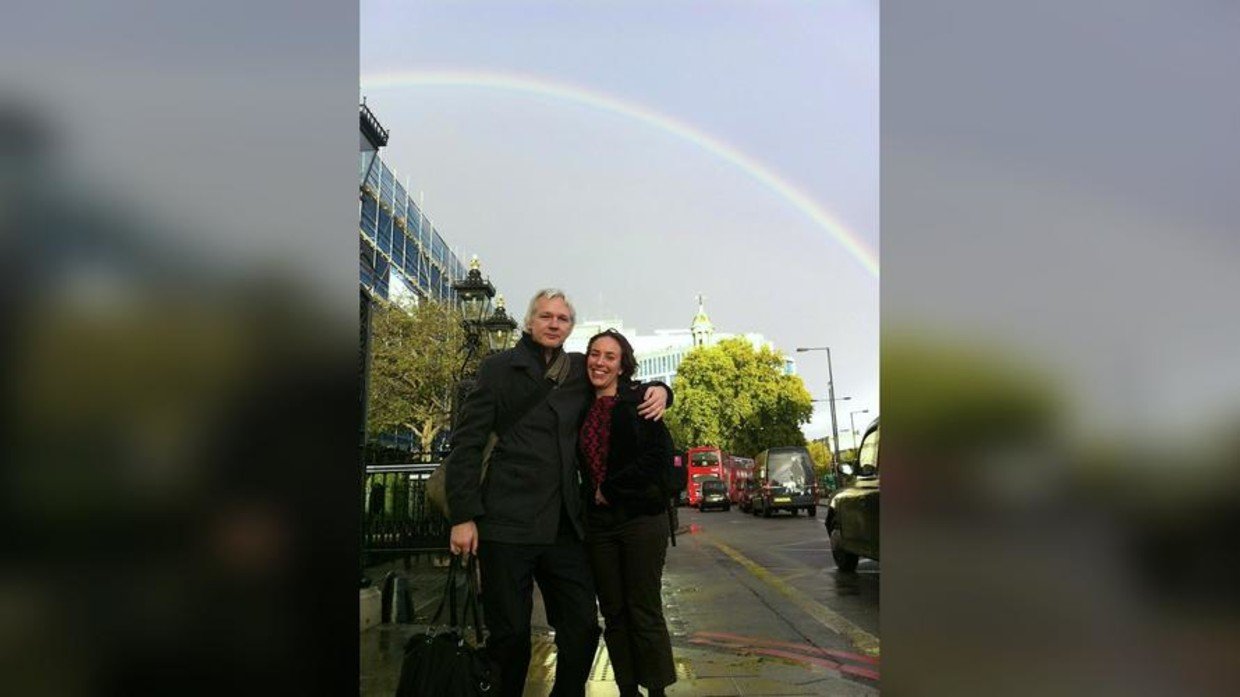Julian Assange and his fiancée Stella Moris have formally registered their intention to get married in maximum security Belmarsh prison, where the Wikileaks co-founder is being held.
“Today we notified our intention to marry. It will take at least 28 days for that to be cleared. We don't have a date planned yet because it will depend on the authorities. It could be as soon as before the New Year,” Moris told journalists on Wednesday after visiting Assange in the maximum security London prison.
She added that the bureaucratic procedure took place in a “legal room” of the prison and that it was nice to see Julian “in a different space” for the first time in the past 2.5 years.
“It was a happy moment that we could actually proceed, he was wearing a suit and a dark red tie, his hair was up in a bun,” Moris said.
The couple, who share two young sons, does not have a date for the wedding yet, but is looking forward to marrying after a few years of being engaged.
“We want to live our lives and do what is in our control,” explained Moris, adding that during the registration “It felt like we were treated as human beings for a change.”
Assange’s fiancée confessed that she is not giving up hope that, with a judgement on his extradition case due at any time, he could be free by Christmas and the wedding could take place outside the prison, where his mental and physical health are deteriorating.
The couple has previously accused Belmarsh authorities and UK government of “illegal interference” with their “basic right to marry,” prompting Moris, who is a lawyer, to initiate the legal action. On November 11 she announced that the permission had been finally granted.
The UK High Court is expected to rule on the appeal by the US against a lower court decision to deny Assange’s extradition to America on grounds of his poor mental health. The Wikileaks co-founder faces up to 175 years of imprisonment if extradited to the US, which accuses him of violating the Espionage Act over the release of thousands of classified documents on Iraq and Afghanistan. Assange supporters claim that he was doing exactly what the journalistic profession required him to do, and therefore his persecution represents a threat to journalism in a broad sense.
Like this story? Share it with a friend!



